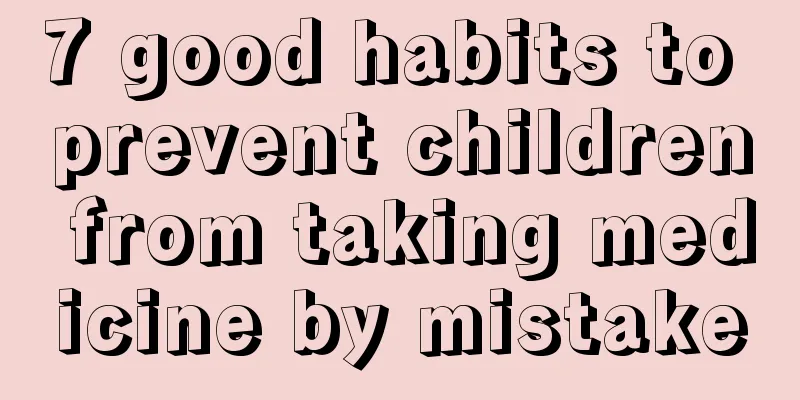Why do children cry at night?

|
Some children have problems with nighttime distress, which seriously affects the quality of sleep of their parents, and they are even afraid that their children may suffer from certain diseases. This requires attention to ensuring the safety of the children, to avoid situations where the children suffer from diseases but do not receive timely treatment. So why do children cry at night? Let me introduce this issue to you below. Babies cannot speak, and crying is a common way for them to express their emotions and make requests. Therefore, we must learn to "listen" and understand their special "language". In infants 3 to 4 weeks after birth, neuroregulatory reflexes are not sensitive. Due to improper feeding and food allergies, local intestinal spasm may occur, causing acute gas discharge disorder and colic. The baby will have paroxysmal severe crying, which usually starts at night. When crying, the cheeks are red, the lips are pale, the abdomen is tense, the hands are clenched into fists, the lower limbs are curled up, and the feet are cold. Night crying due to hunger is common in infants under 3 months old. The baby is often crying and restless due to insufficient breast milk secretion, inverted nipples, etc. This type of crying is manifested by sucking movements after feeding, crying in between, sucking fingers, chewing fists, etc. Babies who are overly tired or sleep-deprived often cry and fuss when they are awakened. In addition, due to the imperfect development of children's nerve centers, brain excitation foci are prone to generalization. During the day, excessive playing or frightening before bedtime will cause the baby to become overly excited and nervous, and will wake up and cry after falling asleep. Many illnesses can also cause babies to cry at night. When the upper respiratory tract is infected, the nasal cavity is blocked and breathing is difficult, which can cause the baby to wake up and cry in his sleep. In addition to crying and making a fuss, the early symptoms of rickets include excessive sweating, baldness circles on the occipital area, and softening of the skull. If an infant suffers from intestinal parasitic diseases, the foreign proteins in the body may stimulate the nervous system and cause night crying. Sometimes babies cry at night because of intestinal colic, which is often related to the child lying down after feeding at night without digesting the food. Children usually won’t cry when they are comfortable. They will only cry when they feel uncomfortable in some aspect. Then I check the place where he sleeps, make sure he is neither cold nor hot, his diaper is dry, and he burps after feeding... then I think as long as these are all okay and he has no physical pain, he should be able to sleep peacefully! Of course, if the child keeps crying and you can't find the reason, you should go to the hospital immediately, don't be careless. Don't worry, I believe you will raise a healthy baby. The above is my opinion on this issue. If the child has the above problems, then we need to pay attention to avoid the occurrence of the above problems so as to avoid affecting the patient's physical health. Many children have crying problems caused by other diseases, so the parents of the children need to pay more attention. |
<<: How to treat pneumonia in a two-month-old baby
>>: When is the period for children to change their teeth?
Recommend
What are the symptoms of congenital heart disease in children?
Congenital heart disease, doctors often refer to ...
Treatment for vomiting in six-month-old babies
Recently, the phenomenon of six-month-old babies ...
Is 377 degrees considered a fever for a child?
Under normal circumstances, the body temperature ...
Baby vomits yellow-green mucus
It is very common for babies to spit up in daily ...
The child hit his forehead and got a big bump.
If your child has a bump on the forehead, you nee...
Can hydrocephalus in children be cured?
The brain is the most important tissue in the bod...
What toothpaste is good for a 10-year-old?
Many factors in people's lives can cause the ...
Baby's forehead is cold
If your baby has a cold forehead, it is most like...
One-year-old baby snack recipes
For babies, in daily life, it is okay to eat some...
How many months does it take for a baby's head to take shape?
The baby's skull is very fragile. If he uses ...
Will a child grow taller after menstruation?
As children grow up, parents have many things to ...
What should I do if my baby’s conjunctiva is inflamed?
Many parents say that their babies have been acti...
Will a child grow taller if he has a fever?
Every parent hopes that their child can grow tall...
What is the reason for flat blood in children?
The reasons for anemia are different for everyone...
When does a child's nose grow taller?
In life, we will find that some parents find that...









